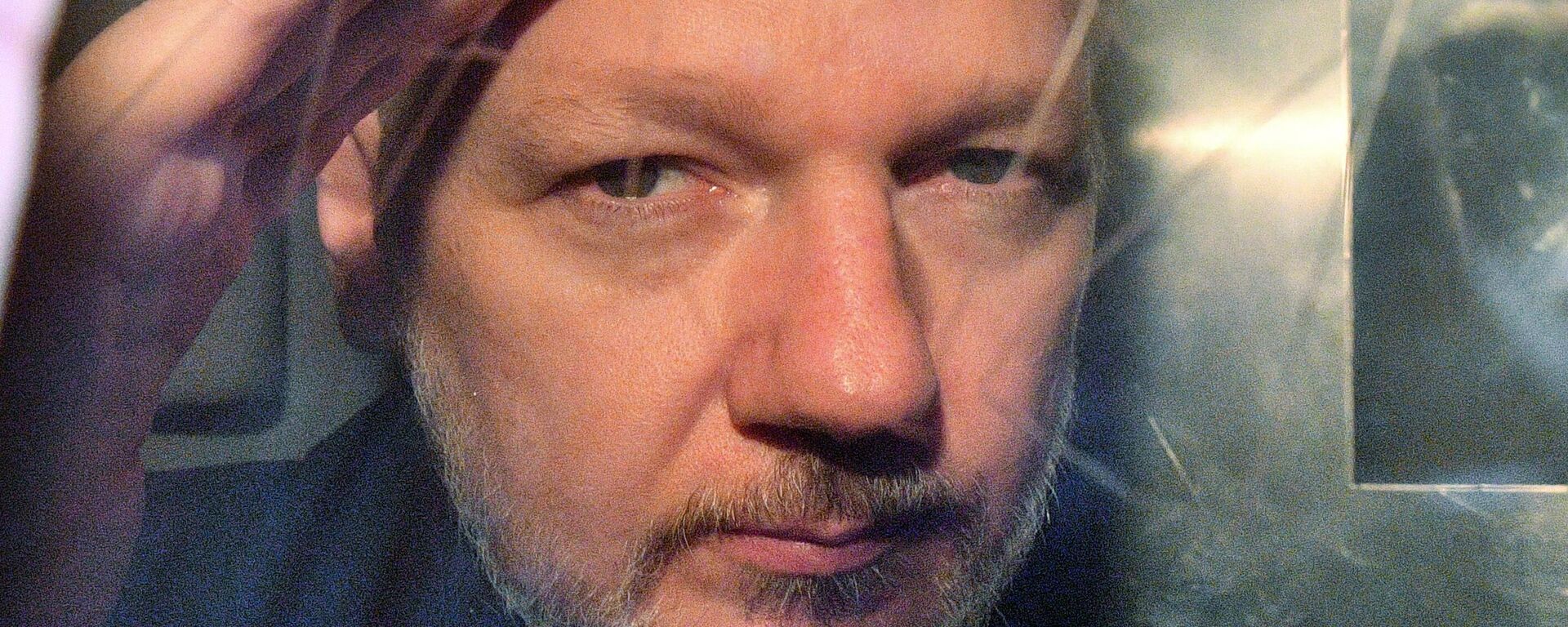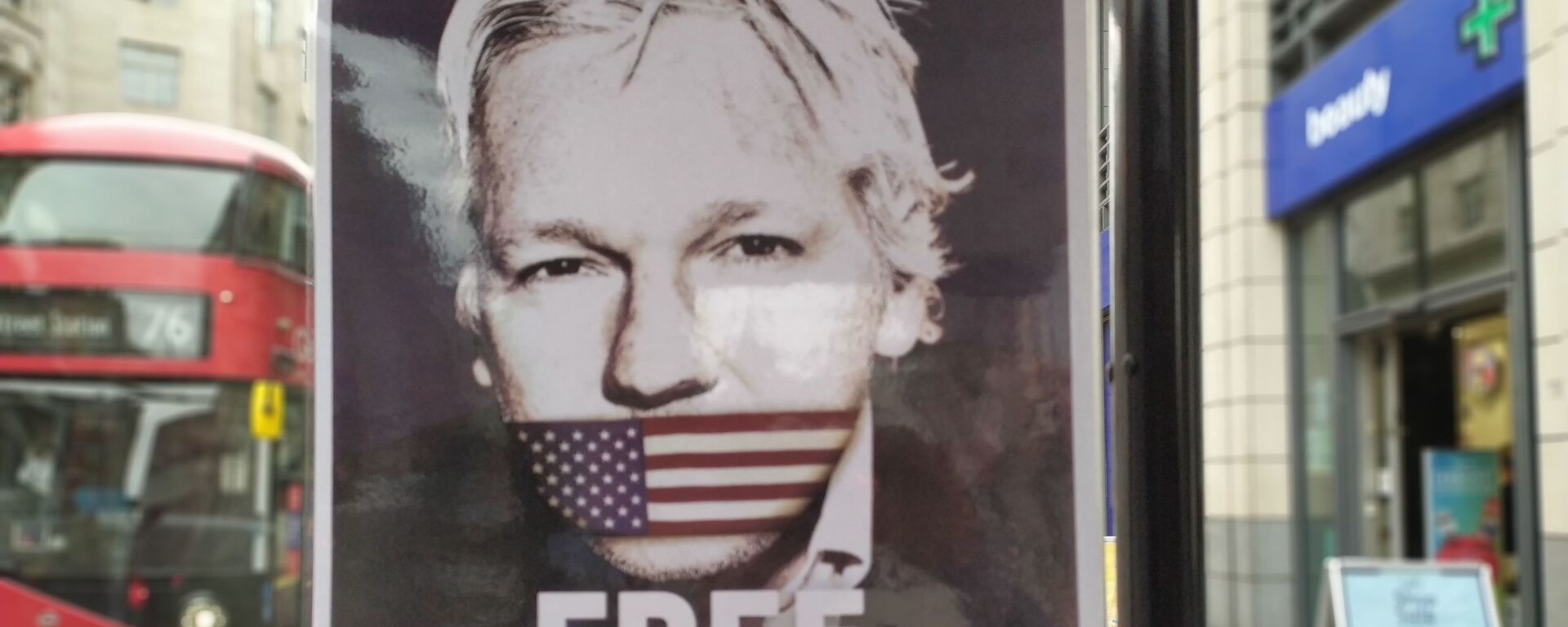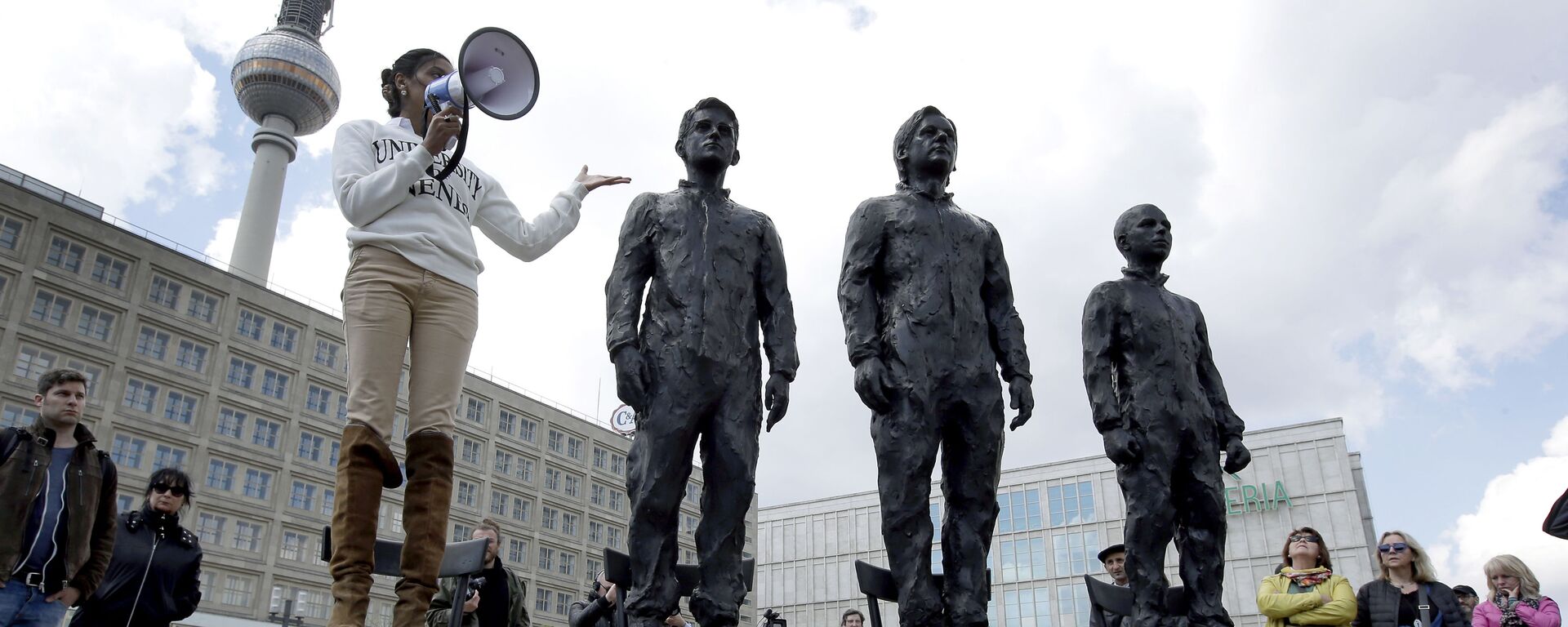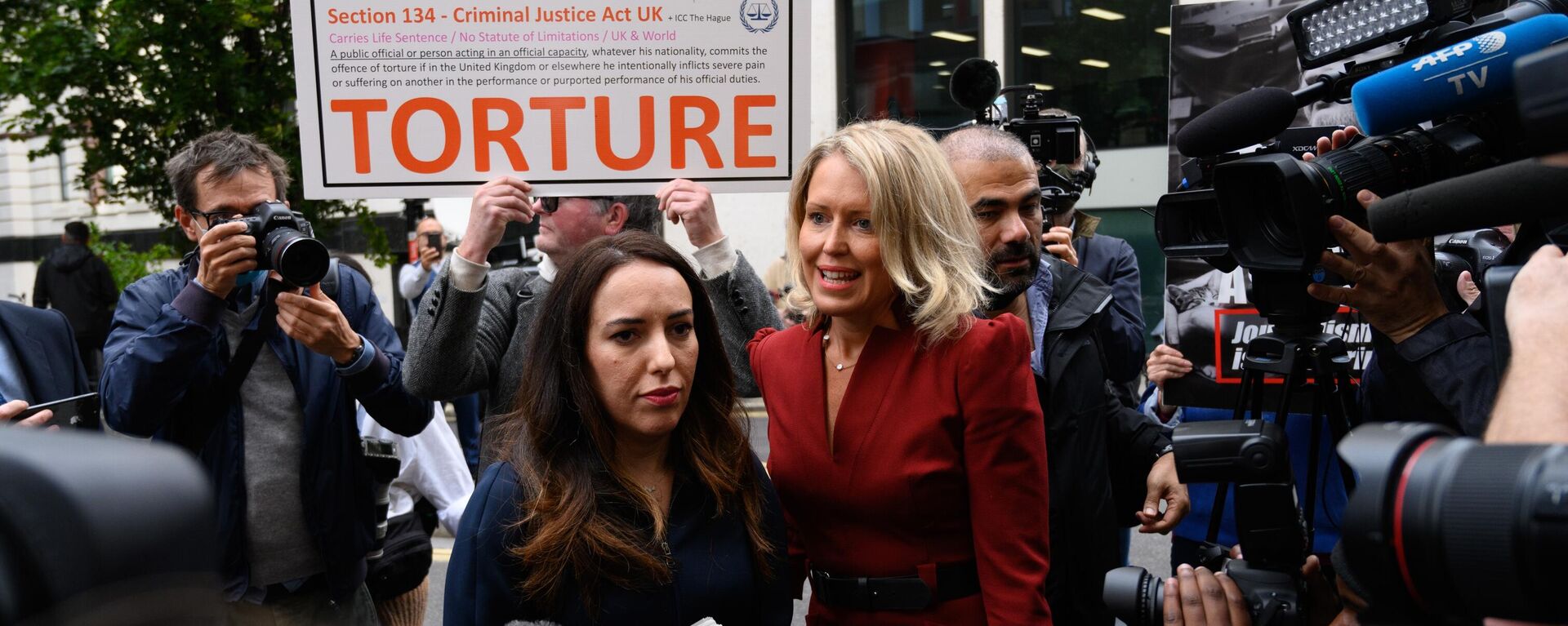London High Court Ruling Considered 'Triumph' for Assange But Battle Far From Over
13:42 GMT 26.03.2024 (Updated: 13:43 GMT 26.03.2024)
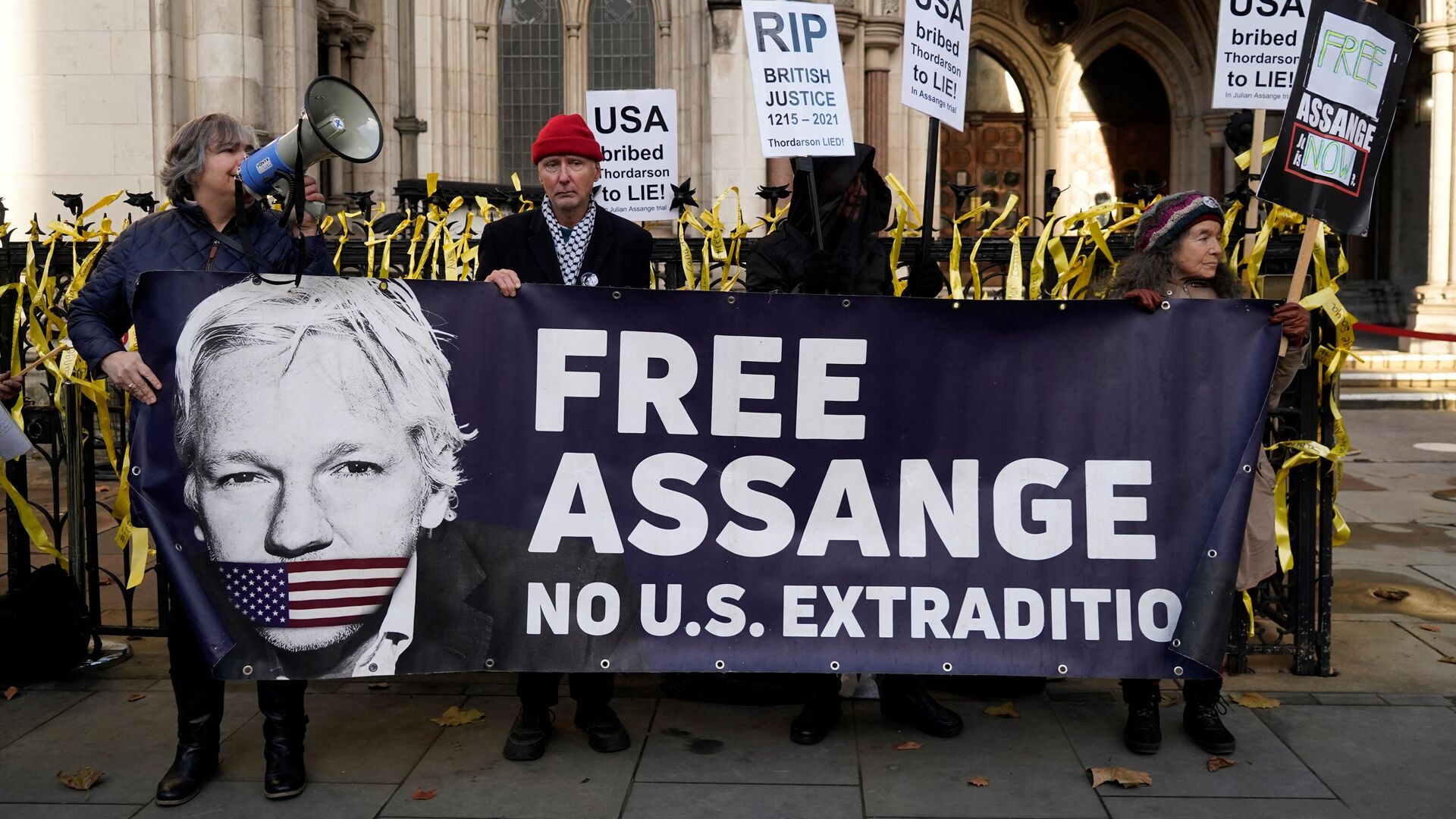
© NIKLAS HALLE'N
Subscribe
The court has allowed WikiLeaks founder Julian Assange to continue to challenge the decision on his extradition to the United States in UK courts. What does this mean for Assange's legal fight?
Julian Assange will not be extradited immediately to the US, a London High Court has ruled.
Likewise, Washington has been given three weeks to provide "satisfactory assurances" that the WikiLeaks founder will face a fair trial, could rely on the First Amendment, and will not be subject to the death penalty.
The Tuesday ruling by the London court grants the WikiLeaks founder an opportunity to continue his fight against extradition to the US where he faces a whopping 18 charges, all bar one under the Espionage Act, Sputnik interlocutors have explained.
"The court decision is a great triumph for freedom of speech and journalism conduct," Andy Vermaut, a Belgian human rights activist and the president of the World Council for Public Diplomacy and Community Dialogue, told Sputnik. "This ruling illuminates the enduring struggle for freedom of the press and the rights of individuals to uncover truths that are in the public’s best interest."
Assange's Limited Ability to Appeal is Injustice
While the court's ruling spells a victory for the Assange legal team, the WikiLeaks founder is being granted permission to appeal on only three of the nine grounds, remarked Taylor Hudak, an independent investigative journalist. She noted that people "do feel that this was somewhat of an injustice."
"The court has given the United States government three weeks to issue satisfactory assurances on those three grounds of appeal," Hudak told Sputnik. "[Assange] is permitted to appeal on the First Amendment issue, that is whether or not he will be given First Amendment protections in the United States, that he is not prejudiced at trial due to his nationality, and that the death penalty not be imposed."
"Another point to make is that he will not be immediately extradited, obviously, and this again gives him an opportunity to prevent spending the rest of his life in a US prison. So that is always welcome," the independent journalist continued.
The battle is far from over, pointed out Dr. David William Norris, a political commentator and former teaching fellow at a college in Birmingham.
"The United States authorities will not relinquish their efforts to get hold of Assange and see him imprisoned for the 175 years they have promised him. It would be, as we all recognize, a death sentence," Norris warned while speaking to Sputnik.
Assange, 52, has been held in a UK high-security prison since 2019. He was detained after the Ecuadorian government annulled the asylum granted to him by the previous cabinet in 2012.
The US is seeking to bring Assange to trial for publishing thousands of classified documents concerning Washington's alleged military crimes in Afghanistan and Iraq in 2010. These damning materials had been provided to WikiLeaks by then-US Army private and whistleblower Chelsea (born Bradley) Manning.
Assange's Extradition Will Set Dangerous Precedent
International human rights groups and journalists warn that Assange's possible extradition to the US would become an ominous signal for freedom of speech and freedom of press across the world.
"In a genuine democracy criticism should be allowed," argued Norris. "To allow the United States to have their way, not only would it be a personal tragedy for Julian Assange, but would bite deeply into every understanding of press freedom.
"The main issue seems to be that the treatment of Julian Assange could set a precedent in that anyone speaking up about matters governments would rather keep hidden is in danger of suffering a similar fate. Most sane and unprejudiced journalists in the UK at least are concerned lest ‘mission creep’ would put them too in danger or dissuade them from reporting that which ought to be made public."
Public Overwhelmingly in Favor of Assange
Despite the US government's efforts to depict Assange as a criminal, people in many countries are inclined to see the WikiLeaks founder as a hero and martyr, according to Sputnik's interlocutors. The public is overwhelmingly in favor of Assange with supporters of him ranging across the political spectrum.
"In Russia, possibly he is portrayed more gloriously as the embodiment of struggle against the Western world dictatorship," Vermaut remarked. "This seemingly divergent view shows us how big the intersections of politics, law and ethics are which mostly makes us realize that they are beyond just the subject of Assange's actions on a global level. For me he is a hero, being a journalist myself, I am on the side of Assange."
According to the observers, the UK court took into account the overwhelming public support for Assange and freedom of speech, hence the decision granting his legal team an opportunity to continue the fight. There could also be other underlying reasons behind the Assange defense team's victory, according to Norris.
"Whilst the Assange case has not widely gripped the public imagination as far as I can tell, were Julian shipped off to the USA hooded in a CIA plane like a terrorist, there would be outrage and there can be little doubt this would spill out onto the streets," the political commentator suggested.
"Yet another cause demonstrating on the streets is the last thing our weak and declining government would want in an election year. Again, the High Court is not known for granting government wishes at the drop of a hat and may simply wish to underline its authority in not giving way to UK government wishes, scoring thereby political points," he continued.
Sputnik's interlocutors bemoaned the fact that the WikiLeaks founder remains behind the bars of the Belmarsh prison despite obvious problems with mental health and his deplorable physical condition.
"There is no legal reason, only a political one for keeping Assange in Belmarsh prison where the conditions are known to be inhumane. He should be released forthwith after more than a decade of brutal political persecution before his health collapses completely and freedom of the press perishes with him," Norris concluded.

